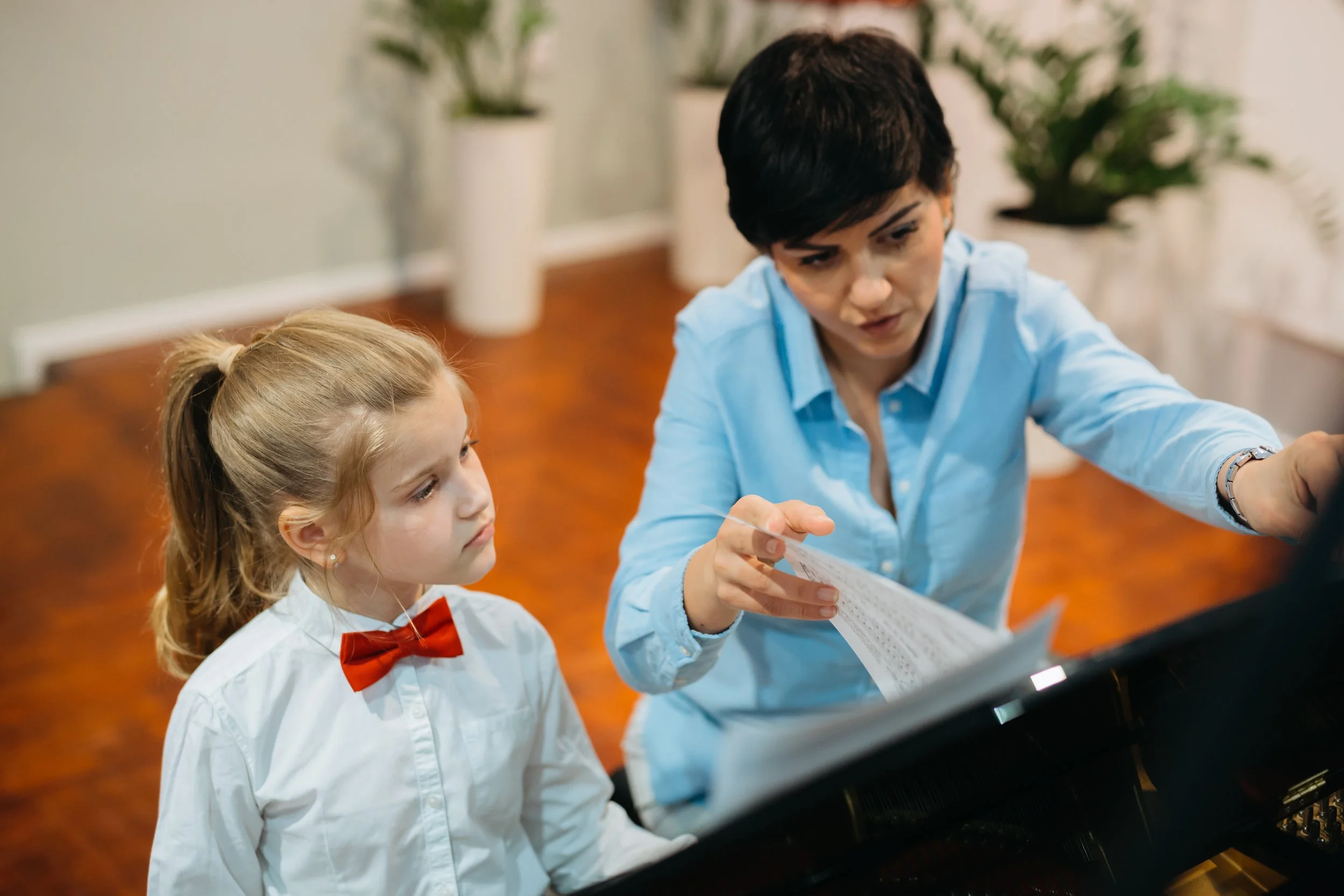The Role of Music Education in Personal Development for Adults vs. Children
Introduction
Music holds a special place in our lives. For some, the journey begins in childhood; for others, the spark is discovered much later in life. No matter when it starts, music education reveals something important about who we are, how we feel, and who we can become.
While the path may look different for children and adults, the rewards are equally profound at any age. Music education helps build confidence, discipline, and emotional intelligence.
Let’s understand how music education shapes personal development in both children and adults.
Children Learn Through Play, Imitation, and Exploration
For young children, music typically begins as a play activity. Singing, clapping, or banging a xylophone or tambourine are easy things that do more than amuse. They facilitate significant areas of learning and development.
Children are born to imitate and learn through repetition. Exposure to music at a young age can develop memory, increase attention span, and enhance coordination.
Music enables children to express themselves, especially when they have no words to say what's on their minds. A shy child may become expressive while singing; a hyperactive child may sit still while playing an instrument.
Group learning also fosters teamwork, patience, and attentive listening. All of these are essential in becoming socially and emotionally developed.
Adults Learn with Purpose and Thought
Adults will play music for a purpose. Some return to instruments learned as a child, and others begin anew. Perhaps it is for personal development, building creativity, stress relief, or simply the enjoyment of learning something new.
Although it will take them longer to develop muscle memory and technique, they have self-awareness, discipline, and high motivation. They will process the music they are performing more thoughtfully, considering what it expresses emotionally.
For most, music is an oasis where they can escape the daily grind, reflect on themselves, and connect with something bigger than themselves. It also makes them feel more positive about themselves.
Emotional Benefits: Expression, Confidence, and Joy
One of the greatest strengths of music is that it can contribute to emotional well-being. For children, it provides a way of exploring and expressing feelings. As they develop musically, so does their emotional well-being and intelligence.
For adults, music is a way of feeling better. When they are stressed or going through changes, music-making is a refuge for expressing feelings and feeling relaxed.
Music makes adults and children more confident. When you master something new, perform in front of an audience, or accomplish something on your own, it can make you feel pretty proud. Music places more emphasis on these experiences and gets you more confident in yourself.
Social Connection Through Music
Music is a natural connector. For children, group lessons and ensemble playing help them learn cooperation and communication. They make friends, learn to listen, and work toward shared goals.
For adults, music builds community. Whether it’s singing in a choir, joining a jam session, or attending group classes, making music with others becomes a source of shared enjoyment. It brings together people of different ages, backgrounds, and skill levels.
The Learning Experience
Children absorb music quickly, much like they do language. Their brains are wired to learn through play and repetition, making early music education highly effective.
Adults, while learning at a different pace, often gain deeper insights. They ask thoughtful questions, connect music to their emotions, and usually have a clear understanding of their goals.
In both cases, music learning is deeply rewarding. Children develop lifelong foundational skills, while adults gain emotional fulfillment, creative confidence, and sharper thinking.
Music Throughout Life
A common myth says music education only works if started young. While early exposure has its advantages, music is truly a lifelong journey.
Children may pick up techniques quickly, but adults often bring deeper meaning to every note. A child may find their voice for the first time, while an adult might rediscover theirs after years of silence.
Wherever you are in life, music meets you there and grows with you as you grow.
Conclusion
If you wish to have your child try music or if you wish to do it yourself, remember this: music is not simply playing notes and practicing. It helps you concentrate, become more creative, and express yourself effectively. It teaches us to listen, to feel, and to relate to other human beings.
The personal development that one gains from learning music is not age-dependent. It's curiosity, intention, and openness. Music is a healthy foundation for building confidence and communication skills in children. For adults, it's a way to enjoy, heal, and rediscover.
The goodnewsis that it is never too early to begin, and never too late to begin again.

